2010 Commonwealth Games
From Wikipedia, the free encyclopedia
| This article may need to be updated. Please update this article to reflect recent events or newly available information, and remove this template when finished. Please see the talk page for more information. |
| XIX Commonwealth Games | |
|---|---|
| Logo of 2010 Commonwealth Games | |
| Host city | Delhi, India |
| Motto | Come out and play |
| Nations participating | 72 Commonwealth Teams |
| Athletes participating | TBA |
| Events | 260 events in 17 disciplines |
| Opening ceremony | 3rd October |
| Closing ceremony | 14th October |
| Queen's Baton Final Runner | 29 June 2010 |
| Main Stadium | Jawaharlal Nehru Stadium |
| Website | http://www.cwgdelhi2010.org |
Contents[hide] |
[edit] Bidding
The two principal bids for the 2010 Commonwealth Games were from Delhi, India and Hamilton, Ontario, Canada. A ballot of members was held in November 2003 at the Commonwealth Games Federation General Assembly in Montego Bay, Jamaica. Delhi bid won by a margin of 46 votes to 22, confirming India's first successful bid for the Games, while marking Canada's to host its fifth games.[1][2][3] India's bid motto was New Frontiers and Friendships.[4]India shifted the balance in its favour in the second round of voting with a promise that it would provide US$ 100,000 to each participating country, along with air tickets, boarding, lodging and transport. The successful 2003 Afro-Asian Games held in Hyderabad was also seen as having showed India has the resources, infrastructure and technical know-how to stage a big sporting event. India also thanked Latif Butt, former vice president of the Olympic Council of Asia, for his support in the winning bid, by saying, "You played a vital role in the Commonwealth Games 2010 being allotted to India. Such actions are worthy of emulation by all concerned in Pakistan and India. I have no doubt that if both sides continue to live by such ideals, one day, sooner than later our generations to come will reap the benefits of and be grateful to those making such contributions. You would certainly be such person."[4] The Indian government stated that it would underwrite the total cost of the Games.[5]
[edit] Organisation
[edit] Organising committee
The organisation was beset by delays: in January 2005, the Indian Olympic Association vice-chairman Raja Randhir Singh expressed concern that Delhi was not up to speed in forming and organising its games committee and, following a 2009 Indian Government report showing two thirds of venues were behind schedule, Commonwealth Games Federation president Mike Fennell stated that the slow progress of preparations represented a serious risk to the event.[6] Singh called for a revamp of the games' organising committees:[7] Jarnail Singh, a former Secretary of the Government of India, was appointed as the Chief Executive Officer and Indian Olympic Association president Suresh Kalmadi was appointed as head of the committee.[8] In spite of delays, commentators stated that they are confident that India will successfully host the games and do so on time.[9][10]At the launch of the Queen’s Baton Relay in October 2009, the Business Club of India (BCI) was formed through the partnership of the organising committee, the Confederation of Indian Industry (CII) and the Federation of Indian Chambers of Commerce and Industry (FICCI). The BCI was formed to both market the Games and promote Indian business interests internationally.[11]
[edit] Costs
The total budget estimated for hosting the Games is US$ 1.6 billion and this amount excludes non-sports-related infrastructure development in the city like airports, roads and other structures. This will likely make the 2010 Commonwealth Games the most expensive Commonwealth Games ever, being larger than the previous games in Melbourne 2006 (approx. US$ 1.1 billion).[edit] Transport
Further information: Transport in Delhi
Delhi proposed a four-lane, 2.2 km underground stretch from Lodhi Road to trans-Yamuna, linking the Games Village to the Jawaharlal Nehru Stadium and reducing travelling time between the Village and the Stadium to six minutes.In response to concerns over the large number of trains that pass by the Delhi metropolitan region daily, construction of road under-bridges and over-bridges along railway lines has been started. To expand road infrastructure, flyovers, cloverleaf flyovers, and bridges have been planned to improve links for the Games and city in general. Road-widening projects have begun with an emphasis being placed on expanding national highways. To improve traffic flow on existing roads, plans are underway to make both the inner and outer Ring roads signal free.
To support its commitment to mass transport, nine corridors have been identified and are being constructed as High Capacity Bus Systems (for example, one from Ambedkar Nagar to Red Fort). Six of these corridors are expected to be operational in 2010. Additionally, The Delhi Metro will be expanded to accommodate more people and boost the use of public transport during the 2010 games. At 420 km long, it will be one of the world's longest networks and it will extend to Gurgaon and the Noida area.[12] For this exponential increase of the network, Delhi Metro will deploy 14 tunnel boring machines, an unprecedented number in an Asian country.[13]
Indira Gandhi International Airport is being modernised, expanded, and upgraded. Costing nearly US$ 1.95 billion, Terminal 3 has improved airport passenger capacity to more than 37 million passengers a year by 2010. A new runway is being constructed, allowing for over 75 flights an hour and – at over 4400 metres long – it will be one of Asia's longest.
The airport will be connected to the city via a six-lane expressway (Delhi–Gurgaon Expressway) and the $580 million Delhi Airport Metro Express line.[14]
[edit] Venues
[edit] Competition venues
Existing and new stadiums in Delhi will be used to house the sports during the Games:[15] The opening and closing ceremonies will take place at the Jawaharlal Nehru Stadium, Delhi.
- Jawaharlal Nehru Stadium, Delhi – Athletics, lawn bowls, weightlifting
- Dhyan Chand National Stadium – Hockey
- Indira Gandhi Arena – Archery, cycling, gymnastics, wrestling
- Delhi University sports complex – Rugby sevens
- Thyagaraj Stadium – Netball
- Siri Fort Sports Complex – Badminton, Squash
- Dr. Karni Singh Shooting Range – Shooting
- Talkatora Stadium – Boxing
- SPM Swimming Pool Complex – Aquatics
- RK Khanna Tennis Complex – Tennis
- Yamuna Sports Complex – Table tennis
Archery, cycling, gymnastics, and wrestling will take place at the Indira Gandhi Arena, the largest indoor sports arena in India and the second-largest in Asia, which seats 25,000 people. Located at the Indraprastha Estate in the eastern region of New Delhi, the arena will be connected to other venues via dedicated bus lanes and mass transportation. The arena will be renovated for the Games.[17]
There are 26 new stadiums which will be utilised for the Commonwealth Games. Some older ones will be upgraded and some new will be constructed.[18]
Non-competition venues
- OC CWG Delhi 2010 Headquarters
- Main Media Centre
[edit] Green Games
In opposition to this intention, a number of environmental controversies arose and the adverse ecological impact of various aspects of the games have been protested by city residents.[19][20] City residents filed a public interest petition to the Supreme Court of India against the felling of 'heritage' trees in the Siri Forest area to make way for Games facilities. The court appointed architect Charles Correa to assess the impact and he severely criticised the designs on ecological grounds.[21] In spite of this, in April 2009 the Supreme Court allowed the construction on the grounds that "much time had been lost" and "the damage already caused to the environment could not be undone".[22][23]
The Commonwealth Games village, located on the flood plains of the Yamuna, has also been the subject of controversies about the flouting of ecological norms.[24] After a prolonged legal battle between city residents and the state, construction was permitted to continue on the basis of an order of the Supreme Court of India in July 2009, which held that the government had satisfied the requirements of "due process of the law" by issuing public notice of its intention to begin construction work in September 1999 (a date four years prior to the acceptance of Delhi's bid for the games).[25]
[edit] Marketing
Shera, the mascot for the 2010 Commonwealth Games
[edit] Media coverage
Further information: List of 2010 Commonwealth Games broadcasters
[edit] Medical Tourism
| | This article does not cite any references or sources. Please help improve this article by adding citations to reliable sources. Unsourced material may be challenged and removed. |
[edit] Other preparation
In preparation for an influx of English-speaking tourists for the Games, the Delhi government is implementing a program to teach English, and the necessary skills for serving tourists, to key workers – such as cab drivers, security workers, waiters, porters, and service staff. In the two years prior to the Games 2,000 drivers were taught English. The program aims to teach 1,000 people English per month in the hope of reaching all key workers by March 2010. In addition to Delhi, the Indian Government plans to expand the program to teach people in local tourist destinations in other parts of India.[28]To prepare for the energy-usage spike during the Games and to end chronic power cuts in Delhi, the government is undertaking a large power-production initiative to increase power production to 7,000 MW (from the current 4,500 MW). To achieve this goal, the government plans to streamline the power distribution process, direct additional energy to Delhi, and construct new power plants. In fact, the government has promised that by the end of 2010, Delhi will have a surplus of power.[29]
In addition to physical preparation, India will offer free accommodation for all athletes at the Games Village, as well as free transport and other benefits, such as a free trip to the famed Taj Mahal and a reserved lane for participants on selected highways.[30] The Games Village will house over 8,000 athletes and officials for the Games. Indian states will train state police forces to handle tourist-related issues and deploy them prior to the Games.
A massive construction and "beautification" project has resulted in the demolition of hundreds of homes and the displacement of city dwellers – at least 100,000 of New Delhi’s 160,000 homeless people have removed from shelters, some of which have been demolished.[31][32] Bamboo screens have been erected around city slums to separate visitors from the sights of the slums,[33] a practice which human rights campaigners have deemed dishonest and immoral.[34]
The Delhi High Court is set to implement a series of "mobile courts" to be dispatched throughout Delhi to relocate migrant beggars from Delhi streets. The mobile courts would consider each beggar on a case-by-case basis to determine whether the beggar should be sent back to his/her state of residence, or be permitted to remain in government-shelters.[35]
[edit] Criticism and controversies
[edit] Delays
In September 2009, Commonwealth Games federation chief Mike Fennell reported that the games were at risk of falling behind schedule and that it was "reasonable to conclude that the current situation poses a serious risk to the Commonwealth Games in 2010". A report by the Indian Government released several months prior found that construction work on 13 out of the 19 sports venues was behind schedule.[6] The Chief of the Indian Olympic Association Randhir Singh has also called expressed his concerns regarding the current state of affairs. Singh has called for the revamp of the games' organizing committees commenting that India now has to "retrieve the games".[7] Other Indian officials have also expressed dismay at the ongoing delays but they have stated that they are confident that India will successfully host the games and do so on time.[9][10] As the Times of India reports, all CWG projects were to be completed by May 2009 and the last year should have been kept for trial runs. The newspaper further reports that the first stadium was handed over for trial runs in July 2010 only.[36] To put the delays in perspective, Beijing National Stadium was completed much ahead of schedule for the 2008 Summer Olympics[37], while the venues for 2012 Summer Olympics in London are scheduled to be delivered one year before the games and the construction of the venues is on track.[38][edit]
On July 28 2010, the Central Vigilance Commission (CVC) released a report showing irregularities in up to 14 CWG projects.[39] As per official reports, in total 129 works in 71 organizations have been inspected.[40] The detailed preliminary findings[41] include- Award of works at higher prices
- Poor Quality Assurance
- Award of work to ineligible agencies
[edit] Social Impact
Labour ViolationsCampaigners in India have accused the organisers of enormous and systematic violations of labour laws at construction sites. Human Rights Law Network reports that independent investigations have discovered more than 70 cases where workers have died in accidents at construction sites since work began.[45] Although official numbers have not been released, it is estimated that over 415,000 contract daily wage workers are working on Games projects.[46] Unskilled workers are paid 85 to 100 Indian rupees (INR) per day while skilled workers are paid 120 to 130 INR per day for eight hours of work. Workers also state that they are paid 134 to 150 INR for 12 hours of work (eight hours plus four hours of overtime). Both these wages contravene the stipulated Delhi state minimum wage of INR 152 (approx. US$3) for eight hours of work.[citation needed]
These represent violations of the Minimum Wages Act, 1948; Interstate Migrant Workmen (Regulation of Employment and Condition of Services) Act 1979, and the constitutionally enshrined fundamental rights per the 1982 Supreme Court of India judgement on Asiad workers.[47] The public have been banned from the camps where workers live and work – a situation which human rights campaigners say prevents the garnering of information regarding labour conditions and number of workers.[47]
There have been documented instances of the presence of young children at hazardous construction sites, due to a lack of child care facilities for women workers living and working in the labour camp style work sites.[48] Furthermore, workers on the site of the main Commonwealth stadium have reportedly been issued with hard hats, yet most work in open-toed sandals and live in cramped tin tenements in which illnesses are rife.[49] The High Court of Delhi is presently hearing a public interest petition relating to employers not paying employees for overtime and it has appointed a four-member committee to submit a report on the alleged violations of workers rights.[48][50]
During the construction of the Games Village, there was controversy over financial mismanagement,[51] profiteering by the Delhi Development Authority and private Real Estate Companies,[52] and inhumane working conditions.[53]
Slum eviction and no-beggar-zones
A much-quoted report by the Housing and Land Rights Network (HLRN) – an arm of the Habitat International Coalition – has brought to light some worrying social and environmental consequences of the event. Based on a Right to Information (RTI) application filed for the study and statements by civil society groups, it has discovered that ‘no tolerance zones’ for ‘beggars’ are being used in Delhi, and that the city has arbitrarily arrested homeless citizens under the Bombay Prevention of Begging Act 1959. Furthermore, over 100,000 families have already been evicted in order to make space for CWG-related projects, and a further 30,000 to 40,000 were slated for eviction and ‘relocation’ at the time of the report’s publication.[54]
Urban Change
Mitu Sengupta, an academic, points out that there is a “tradition of using ‘urban spectacles’ such as the Olympics and World’s Fairs to enhance a city’s global recognition, image and status, and to push through controversial policy reforms that might otherwise linger in the pending file for years (it is easier to undercut local opposition under the pressure of a fixed deadline and the international spotlight).” She writes that the reforms involved are, all too often “the invention of an affluent, globally connected minority that is relatively detached from local conditions and the local population.” The 2010 Commonwealth Games, she says, are being used to invigorate an elite-driven program of urban transformation” that centers on privatization, securitization, and the construction of “monuments to vanity.” She concludes that “the lure of national prestige, an immovable deadline and, as of late, the fear of national embarrassment” have helped undermine the urban social movements and independent activists that typically resist this agenda.[55]
[edit] Terror threats
Following the attacks on Mumbai in 2008 some athletes and their representative bodies expressed security fears during the games. In April 2010, during the Indian Premier League, two low intensity bombs went off outside the stadium in Bangalore. Although there were no casualties, this postponed the start of the game by an hour. Following this attack, foreign cricketers like Kevin Pietersen expressed fears for their safety and questions were raised regarding the safety of atheles during the Commonwealth Games. The UK and Canada also warned about potential attacks on commercial targets in Delhi ahead of the games.[56][57][edit] Corruption
| Please help improve this article by expanding it. Further information might be found on the talk page. |
[edit] Queen's Baton relay
The Queen's Baton Relay began when the baton, which contains Queen Elizabeth II's message to the athletes, left Buckingham Palace on 29 October 2009. The baton will arrive at the 2010 Games opening ceremony on 3 October 2010, after visiting the other 70 nations of the Commonwealth and travelling throughout India, reaching millions of people to join in the celebrations for the Games.The baton arrived in India on the 25th June 2010 through the Wagah Border crossing from Pakistan.[58]The baton was designed by Michael Foley, a graduate of the National Institute of Design.[59] It is a triangular section of aluminium twisted into a helix shape and then coated with coloured soils collected from all the regions of India. The coloured soils are a first for the styling of a Queen's Baton. A jewel-encrusted box was used to house the Queen's message, which was laser-engraved onto a miniature 18 carat gold leaf – representative of the ancient Indian 'patras. The Queen's baton is ergonomically contoured for ease of use. It is 664 millimetres high, 34 millimetres wide at the base, and 86 millimetres wide at the top and weighs 1,900 grams.
The Queen's baton has a number of technological features including:
- The ability to capture images and sound
- Global positioning system (GPS) technology so the baton's location can be tracked
- Embedded light emitting diodes (LEDs) which will change into the colours of a country’s flag whilst in that country
- A text messaging capability so that people can send messages of congratulations and encouragement to the baton bearers throughout the relay
[edit] Calendar
The official calendar for the 2010 Commonwealth Games is as follows:[60]| ● | Opening ceremony | ● | Event competitions | ● | Closing ceremony |
[edit] Sports
There are 17 disciplines planned for the 2010 Commonwealth Games.
|
The triathlon appears likely to be excluded from these games as there is no suitable location for the swimming stage. The organisers have also proposed removing basketball, but want to include archery, tennis, and billiards and snooker for men. Cricket, although in strong demand, may not make a come-back as the Board of Control for Cricket in India were not keen on a Twenty20 tournament, and the organisers did not want a one day tournament.[62]
[edit] Participating nations
There are currently 72 nations planning to field teams at the 2010 Commonwealth Games. As Fiji is suspended from the Commonwealth, it has been banned from participating in the Games.[63] Rwanda will field a team for the games since becoming a Commonwealth member in 2009.[64]
| ||
[edit] See also
[edit] References
It's Common v/s Wealth - Exposing Commonwealth Games 2010 written by Kapil Mishra
- ^ New Delhi to host 2010 Commonwealth Games. The Age (2003-11-14). Retrieved on 2010-04-02.
- ^ 2010 Commonwealth Games. Commonwealth Games Federation. Retrieved on 2010-04-02.
- ^ The Report of the Commonwealth Games Evaluation Commission for the 2010 Commonwealth Games. Commonwealth Games Federation. Retrieved on 2010-04-02.
- ^ a b Commonwealth Games 2010 in New Delhi: Pakistan played important role. [[Daily Times (Pakistan)|]] (2010-04-13). Retrieved on 2010-04-23.
- ^ India wins bid to host 2010 Commonwealth Games in New Delhi. The Press Trust of India Ltd (2003-11-14). Retrieved on 2010-04-23.
- ^ a b "India admits 2010 Games problems". BBC. 2009-09-15. http://news.bbc.co.uk/2/hi/south_asia/8256127.stm. Retrieved 2010-04-23.
- ^ a b "Olympic official calls for revamp of Delhi Games committee". Reuters. 2009-09-15. http://in.reuters.com/article/topNews/idINIndia-42471320090915.
- ^ [1][dead link]
- ^ a b Dean Nelson (2009-09-15). "Delhi Commonwealth Games 'at grave risk of collapse'". London: Telegraph.co.uk. http://www.telegraph.co.uk/news/worldnews/asia/india/6190118/Delhi-Commonwealth-Games-at-grave-risk-of-collapse.html. Retrieved 2010-04-23.
- ^ a b Jeremy Page (2009-09-15). "Only a year to run – and Delhi is losing race to host Commonwealth Games". London: Times Online. http://www.timesonline.co.uk/tol/news/world/asia/article6834446.ece. Retrieved 2010-04-23.
- ^ Business at the Games. 2010 Commonwealth Games. Retrieved on 2010-07-21.
- ^ Delhi Metro Rail Corporation
- ^ "Delhi Metro deploys 'record' 14 tunnel boring machines". http://www.indiaenews.com/business/20080318/105062.htm. Retrieved 2008-05-14.
- ^ Indira Gandhi International Airport
- ^ CWG Venues, 2010 Commonwealth Games, 13 May 2007.
- ^ Jawaharlal Nehru Stadium Information
- ^ "Indira Gandhi Arena". http://www.commonwealthgamesnewdelhi.com/venues-2010/indira-gandhi-arena.html. Retrieved 2008-08-27.
- ^ "New stadiums". http://www.delhispider.com/resources/2229-Venues-Commonwealth-Games-Delhi.aspx. Retrieved 2010-01-19.
- ^ Trees. Delhi Greens. Retrieved on 2010-07-06.
- ^ "Students protest against felling of trees eating of footpath space/". http://delhigreens.com/tag/trees/.
- ^ Correa slams DDA for Siri Fort mess. Express India (2009-03-07). Retrieved on 2010-07-06.
- ^ Siri Fort Games project gets SC’s okay. Express India (2009-04-28). Retrieved on 2010-07-06.
- ^ "Supreme Court Clears Siri Fort Complex, Indian Express, 28 April 2009". http://www.expressindia.com/latest-news/siri-fort-games-project-gets-scs-okay/451941/.
- ^ Games Village flouting ecological norms - India News - IBNLive. Ibnlive.in.com (2010-02-03). Retrieved on 2010-07-06.
- ^ "Court allows Indian Games village". BBC News. 2009-07-30. http://news.bbc.co.uk/nolpda/ifs_news/hi/newsid_8175000/8175954.stm. Retrieved 2010-04-23.
- ^ "Shera — the friendly tiger will be the mascot for the 2010 Commonwealth Games, Financial Express, 9 March 2006". http://www.financialexpress.com/news/shera-is-2010-cwealth-games-mascot/145419/. Retrieved 2010-03-05.
- ^ Idiom designs logo for Commonwealth Games. Television Point (2008-01-09). Retrieved on 2010-03-31.
- ^ Roy, Rajeev Ranjan (2008-03-30). "Lessons in English and etiquette ahead of Commonwealth Games". http://www.indiaenews.com/travel/20080330/107541.htm. Retrieved 2008-05-13.
- ^ "Delhi will have surplus powe...". 2008-03-21. http://www.indiaenews.com/india/20080321/105643.htm. Retrieved 2008-05-13.
- ^ Commonwealth Games, India
- ^ "India razes slums, leaves poor homeless". CNN. 2009-01-14. http://www.cnn.com/2009/WORLD/asiapcf/01/14/india.slums/index.html. Retrieved 2010-03-04.
- ^ "Poor lose before Games begin". http://www.thenational.ae/apps/pbcs.dll/article?AID=/20100116/BUSINESS/701169964/1005.
- ^ Nelson, Dean (2009-08-17). "New Delhi to hide slums with bamboo 'curtains' during 2010 Commonwealth Games". The Daily Telegraph (London). http://www.telegraph.co.uk/sport/othersports/commonwealthgames/6043719/New-Delhi-to-hide-slums-with-bamboo-curtains-during-2010-Commonwealth-Games.html. Retrieved 2010-03-04.
- ^ Buncombe, Andrew (2010-03-03). "Aboard Delhi's beggar express". The Independent (London). http://www.independent.co.uk/news/world/asia/all-aboard-delhis-beggar-express-1914922.html. Retrieved 2010-03-05.
- ^ "Mobile courts suggested to make Delhi beggar-free". 2008-05-04. http://www.indiaenews.com/india/20080507/116544.htm. Retrieved 2008-05-13.
- ^ Times of India (2010-07-29). "14 Commonwealth Games projects under CBI, CVC scanner". http://timesofindia.indiatimes.com/india/14-Commonwealth-Games-projects-under-CBI-CVC-scanner/articleshow/6229348.cms. Retrieved 2010-08-01.
- ^ "Milestones in the construction of the Bird's Nest". Beijing: Beijing 2008 Official Site. 2008-06-28. http://en.beijing2008.cn/cptvenues/venues/nst/headlines/n214423642.shtml. Retrieved 2010-08-02.
- ^ Owen Gibson (2010-07-27). "London 2012 progress report: Will Britain deliver on Olympic promises?". London: Guardian UK. http://www.guardian.co.uk/sport/2010/jul/27/london-2012-progress-report-deliver-promises. Retrieved 2010-08-02.
- ^ The Economic Times (2010-07-28). "CVC finds irregularities in several CWG projects". http://economictimes.indiatimes.com/news/news-by-industry/et-cetera/CVC-finds-irregularities-in-several-CWG-projects/articleshow/6229429.cms. Retrieved 2010-08-01.
- ^ Clarification–regarding inspection of works relating to Common Wealth Games., report issued by CVC. Download pdf
- ^ INSPECTION OF WORKS RELATED TO COMMON WEALTH GAMES, report by the CVC, Download PDF
- ^ NDTV India (2010-07-31). "Corruption scandal hits 2010 Games, organisers deny charges". http://www.ndtv.com/article/india/corruption-scandal-hits-2010-games-organisers-deny-charges-40991. Retrieved 2010-08-02.
- ^ ibnlive (2010-08-5). "3 Kalmadi aides sacked from games panel". http://ibnlive.in.com/news/senior-cwg-official-darbari-sacked/128262-5-23.html?from=tn. Retrieved 2010-08-05.
- ^ timesofindia (2010-08-5). "Games scam: Kalmadi aide T S Darbari sacked". http://timesofindia.indiatimes.com/sports/events-tournaments/commonwealth-games/top-stories/Games-scam-Kalmadi-aides-Darbari-Mohindroo-sacked/articleshow/6261909.cms. Retrieved 2010-08-05.
- ^ Biswas, Soutik (2010-03-22). A Commonwealth shame?. BBC. Retrieved on 2010-03-31.
- ^ "Daily News and Analysis". http://www.dnaindia.com/sport/report_commonwealth-games-hc-notices-to-govt-for-violation-of-labour-laws_1339960. Retrieved 2010-03-05.
- ^ a b "Peoples Union for Democratic Rights Report"". http://www.pudr.org/index.php?option=com_docman&task=doc_details&gid=179&Itemid=63. Retrieved 2010-03-05.
- ^ a b "Guardian Photo essay Commonwealth Games construction under labour spotlight". The Guardian (London). 2010-02-02. http://www.guardian.co.uk/world/gallery/2010/feb/02/child-labour-commonwealth-games-india. Retrieved 2010-04-23.
- ^ "The Dawn". http://www.dawn.com/wps/wcm/connect/dawn-content-library/dawn/news/sport/08-commonwealth-games-ts-01. Retrieved 2010-03-05.
- ^ "Asia News International". http://www.in.com/news/current-affairs/fullstory-high-court-appoints-panel-to-probe-labour-violation-laws-at-commonwealth-games-sites-12663901-142073-1.html. Retrieved 2010-03-05.
- ^ Emaar-MGF gets Rs 700 cr Games bailout. Business-standard.com. Retrieved on 2010-07-06.
- ^ Games booster for realty market?. Hindustan Times (2008-10-07). Retrieved on 2010-07-06.
- ^ Meningitis strikes Commonwealth Games Village. Thaindian.com (2008-03-04). Retrieved on 2010-07-06.
- ^ The Housing and Land Rights Network (HLRN),"The 2010 Commonwealth Games: Whose Wealth, Whose Commons?" <http://www.habitants.org/news/inhabitants_of_asia/the_2010_commonwealth_games_whose_wealth_whose_commons>
- ^ Mitu Sengupta, "The Price of Being World Class" (http://www.counterpunch.org/sengupta07302010.html)
- ^ Page, Jeremy (2010-04-23). "Attack alerts in Delhi hit plans to stage Commonwealth Games". The Times (London). http://www.timesonline.co.uk/tol/news/world/asia/article7105608.ece. Retrieved 2010-04-23.
- ^ Commonwealth Games security lagging behind. Ndtv.com. Retrieved on 2010-07-06.
- ^ CWG 2010 Queen's baton arrives in India CWG 2010 Queen's baton arrives in India
- ^ http://209.85.229.132/search?q=cache:-v7MG8zsG84J:timesofindia.indiatimes.com/sports/events-tournaments/commonwealth-games-2010/top-stories/Relay-baton-depicts-Indias-diverse-culture-tradition/articleshow/5178236.cms+baton+michael+foley&cd=1&hl=en&ct=clnk&gl=in
- ^ "Competition Schedule". Organising Committee Commonwealth Games 2010 Delhi. http://cwgdelhi2010.org/dcwg/index.php?q=node/627. Retrieved 16 April 2010.
- ^ "India wants kabaddi at Olympics". 2006-12-23. http://timesofindia.indiatimes.com/articleshow/910987.cms. Retrieved 2008-11-15.
- ^ "Cricket unlikely at 2010 Games". Cricinfo. http://content.cricinfo.com/ci/content/story/234191.html.
- ^ "Fiji to appeal Commonwealth Games ban", The Times of India, 1 December 2009
- ^ http://www.thecgf.com/countries/intro.asp?loc=RWA
[edit] External links
| Wikimedia Commons has media related to: 2010 Commonwealth Games |

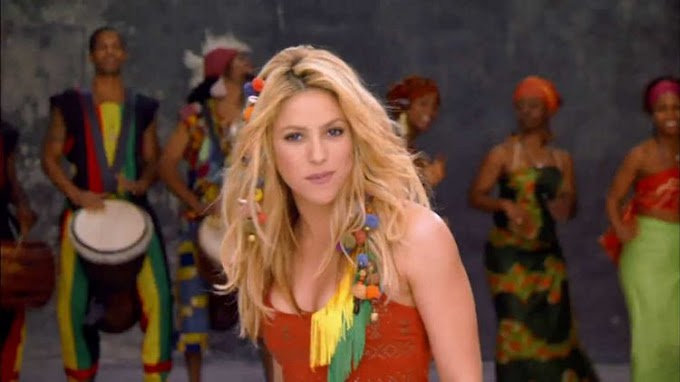

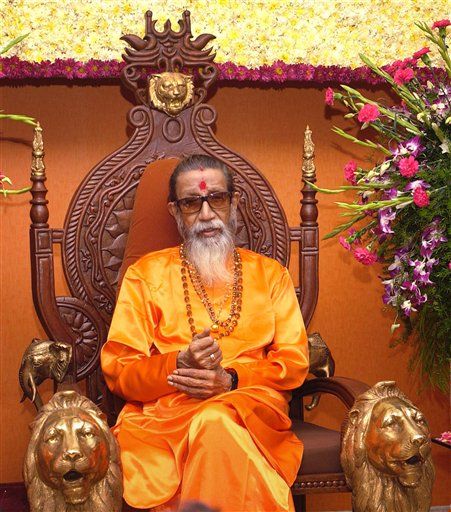
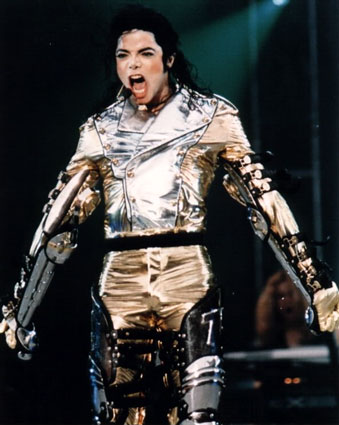
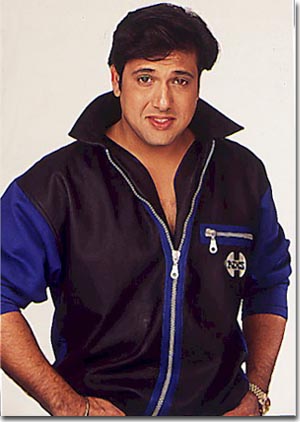


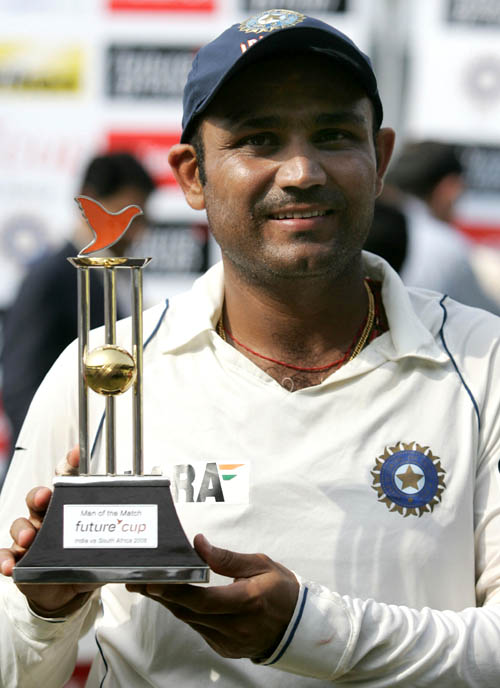

0 Comments